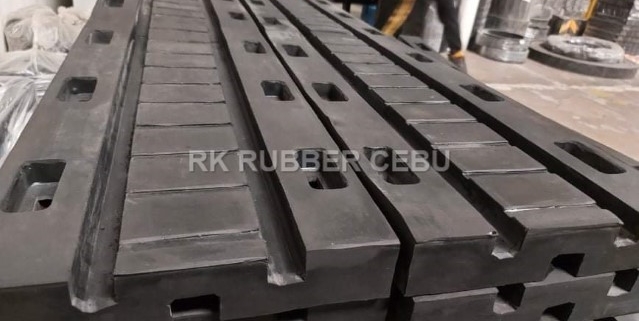EPDM for Industrial Application
EPDM, with its durability and chemical resistance, is essential in industrial settings, offering longevity in challenging environments. It serves as a pivotal material in manufacturing processes, creating durable seals and withstanding temperature and chemical variations. In the automotive sector, EPDM enhances sealing systems, providing resistance to heat, weathering, and chemicals. In construction, EPDM is widely used for waterproofing roofs and sealing joints, aiding in preventing water leakage. Across various industries, EPDM’s reliability and resistance to harsh conditions make it indispensable for industrial applications. Further exploration reveals its extensive uses and benefits in diverse sectors.
Key Points
- EPDM is vital in industrial applications for its durability and chemical resistance.
- Being used in the electrical industry for insulation due to its dielectric properties.
- Can withstands harsh environmental conditions like UV rays and extreme temperatures.
- It is extensively utilized in marine applications for its resistance to water and ozone.
- It offers reliability and longevity in demanding industrial settings.
EPDM Applications in Manufacturing
In manufacturing, EPDM finds extensive application due to its exceptional resistance to heat, weathering, and chemicals. EPDM sealing solutions have become indispensable in various industrial processes where sealing against harsh conditions is vital. The versatility of EPDM gasket materials makes them ideal for creating durable seals in equipment ranging from pumps and valves to piping systems. EPDM’s ability to maintain its integrity when exposed to temperature variations, ultraviolet radiation, ozone, and a wide range of chemicals makes it a preferred choice in manufacturing settings where reliability is paramount.
EPDM sealing solutions offer excellent compression set resistance, ensuring long-term sealing performance even in demanding environments. The inherent flexibility of EPDM gasket materials allows them to conform to irregular surfaces, providing a tight and secure seal that prevents leaks and contamination. Manufacturers across industries rely on EPDM for its durability, longevity, and cost-effectiveness in maintaining operational efficiency and safety.
EPDM in Automotive Industry
EPDM rubber compounds play an essential role in enhancing the performance and longevity of automotive sealing systems. In the automotive industry, EPDM is extensively used in the manufacturing of automotive seals and weather stripping due to its exceptional properties. Automotive seals made from EPDM provide superior resistance to heat, weathering, and chemicals, guaranteeing a durable and long-lasting seal for various components in vehicles. EPDM weather stripping is important for preventing water, air, and dust infiltration, contributing to the overall efficiency and comfort of the vehicle.
The automotive seals, often found around doors, windows, sunroofs, trunks, and hoods, benefit greatly from EPDM’s ability to maintain flexibility across a wide temperature range. This flexibility ensures a tight seal under different weather conditions, reducing noise and enhancing the vehicle’s overall performance. EPDM’s resilience to ozone and UV exposure further adds to its suitability for automotive applications, making it a preferred choice for sealing systems in the automotive industry.
EPDM for Construction Sector
EPDM’s importance extends beyond the automotive industry, finding significant application in the construction sector for its durable and weather-resistant properties. In construction, EPDM is widely used in roofing systems due to its excellent waterproofing solutions. The material’s ability to withstand extreme weather conditions, such as high temperatures, UV exposure, and heavy rainfall, makes it an ideal choice for ensuring long-lasting and reliable roofs.
Moreover, EPDM plays a vital role in infrastructure projects, where sealing materials are required to prevent water leakage and damage. Its flexibility and ease of installation make it a preferred option for sealing joints, flashings, and penetrations in various construction applications. EPDM’s resistance to ozone and other environmental factors adds to its appeal in the construction sector, providing durability and longevity to structures.
Industrial Uses of EPDM
Widely recognized for its resilience and adaptability, EPDM plays a crucial role in various industrial applications due to its exceptional durability and chemical resistance. In the electrical industry, EPDM is utilized for insulation due to its excellent dielectric properties and resistance to heat, making it a preferred choice for cables, wires, and electrical connectors. The ability of EPDM to withstand harsh environmental conditions, such as exposure to UV rays and extreme temperatures, further enhances its suitability for electrical applications where reliability is paramount.
Moreover, EPDM finds extensive use in marine applications, where its resistance to water, ozone, and seawater make it an ideal material for seals, gaskets, and other components exposed to marine environments. The durability of EPDM ensures longevity in challenging conditions, providing a cost-effective solution for marine equipment that requires protection against corrosion and deterioration. Overall, the versatility and performance of EPDM make it a valuable asset in industrial settings, offering reliability and longevity in demanding applications.
Frequently Asked Questions
Can EPDM Be Used in Food Processing Applications?
EPDM compatibility in food processing applications is crucial to guarantee food safety. Manufacturers must adhere to FDA regulations for EPDM sealing materials to prevent contamination risks. Careful selection and maintenance are essential.
Is EPDM Suitable for High-Pressure Hydraulic Systems?
EPDM exhibits impressive flexibility and durability, making it a suitable material for high-pressure hydraulic systems. Its hydraulic performance is commendable, ensuring reliable operation under demanding conditions. EPDM’s properties contribute to enhanced efficiency and longevity in such applications.
What Are the Limitations of EPDM in Extreme Temperatures?
Extreme temperatures can challenge EPDM due to thermal expansion and cold cracking. These limitations can affect its performance in applications where temperature variations are significant, emphasizing the importance of considering alternative materials for such conditions.
Does EPDM Require Special Maintenance in Industrial Settings?
In industrial settings, EPDM demands regular preventive measures to guarantee peak performance. Cleaning procedures should be followed meticulously to prevent buildup of contaminants that could compromise the material’s integrity and longevity in service.
Can EPDM Be Used in Contact With Chemicals and Solvents?
Chemical compatibility is essential in industrial settings. EPDM exhibits good resistance to various chemicals and solvents. Its molecular structure provides a durable barrier, making it suitable for applications where contact with these substances is common.
Conclusion
EPDM has proven to be a versatile material with a wide range of industrial applications. From manufacturing to automotive and construction sectors, EPDM has demonstrated its durability and resistance to various environmental factors. Its use in sealing, insulation, and protection has made it a preferred choice for many industries. Overall, EPDM continues to be a valuable asset in various industrial settings due to its reliability and effectiveness.

